UK doubles aid for Sudan and neighboring countries facing the worst humanitarian crisis of the decade
· UK announces a major aid increase of £113 million for people in Sudan and those who have fled to neighboring countries
· Foreign Secretary will call for the Adre border crossing to remain open indefinitely and for immediate action to end the violence
· Draft UN Security Council resolution introduced to push for the protection of civilians and an unrestricted passage of aid.
Today [Sunday 17 November] the UK has announced an aid package which will support more than one million people affected by the devastating war in Sudan, providing vital aid for those in need.
The new £113 million aid package, which doubles the UK’s aid commitment to Sudan and the region this year, will assist over 600,000 people in Sudan and 700,000 people in neighbouring countries who have fled the conflict, including Chad and South Sudan.
During the Foreign Secretary’s visit to the United Nations Security Council tomorrow [Monday 18 November], he will call on the Sudanese Armed Forces (SAF) to keep the vital Adre border crossing open indefinitely and for the removal of restrictions, which have limited the amount of aid coming through it. The Foreign Secretary will also call for the SAF and Rapid Support Forces to stop blocking aid convoys.
After 18 months of violent conflict, Sudan is facing the worst humanitarian crisis of the decade, with over 500,000 people in Darfur in famine conditions. Over 11 million people are displaced, 25 million are in desperate need of aid, and famine is likely to spread.
The new funding package announced today will support UN and NGO partners in providing food, cash, shelter, medical assistance, water and sanitation.
Not only is this aid vitally needed, but it will also help people to stay within their home region so they can return to their homes when conditions allow.
Foreign Secretary David Lammy said:
The brutal conflict in Sudan has caused unimaginable suffering. The people of Sudan need more aid, which is why the UK is helping to provide much-needed food, shelter and education for the most vulnerable.
But we cannot deliver aid without access. Starvation must not be used as a weapon of war and we can only stop this famine if every border crossing and route is open, accessible and safe.
As the lead on Sudan in the UN Security Council, I will be using the UK’s Presidency on Monday to press for a resolution that ensures the protection of civilians and an unrestricted passage of aid.
The UK will never forget Sudan.
At the UN, the Foreign Secretary will bring together international partners to lead a discussion on steps to push the warring parties to remove obstacles to humanitarian access.
Humanitarian workers face significant challenges delivering aid to those most in need with instances of aid workers killed, access being blocked by the warring parties, and UN workers unable to move freely. The Adre border crossing re-opened in August and offers a vital lifeline to allow aid to be delivered from Chad into Darfur.
The Minister of State for Development Anneliese Dodds said:
During my visit to South Sudan in August, I saw first-hand the heart-breaking impact the violence is having on those fleeing the conflict.
The humanitarian crisis in Sudan is worsening. Famine and disease are spreading, and by next year, many more will be in desperate need of aid.
We have to prevent further suffering by acting now. Support announced today will reach over a million people, providing food for some of those most in need and will assist neighbouring countries to continue hosting refugees.
The UK has also introduced a new UN Security Council resolution which will pressure the Sudanese Armed Forces and the Rapid Support Forces to protect civilians, deliver a ceasefire and allow the safe passage of aid.
On 22 August, the UK Minister for Development, Anneliese Dodds, announced £15 million to support those fleeing violence in Sudan, including those displaced to South Sudan and Chad.
Background
· The conflict in Sudan began last April 2023 when violence erupted between the Sudanese Armed Forces (SAF) and the Rapid Support Forces (RSF). Tensions between SAF General Abdel Fattah al-Burhan and RSF General Mohamed Hamdan Dagalo (Hemedti) had been escalating for months following disagreements on a transition to a civilian led government.
· On 18 October, the UK led a joint statement with 10 other donors, condemning the obstruction of aid and called upon the warring parties to comply with obligations under international humanitarian law.
· Funding announced today includes:
· £43.5 million for Sudan
· Funding will also include £69.5 million of support for people affected by the conflict in neighbouring countries including:
· Chad
· Sudan
· Uganda
· Education Cannot Wait will receive support to provide safe learning spaces and psychosocial support for 200,000 vulnerable children in refugee and host communities in Chad, Ethiopia, Libya, South Sudan, Central African Republic and Uganda.
· Libya
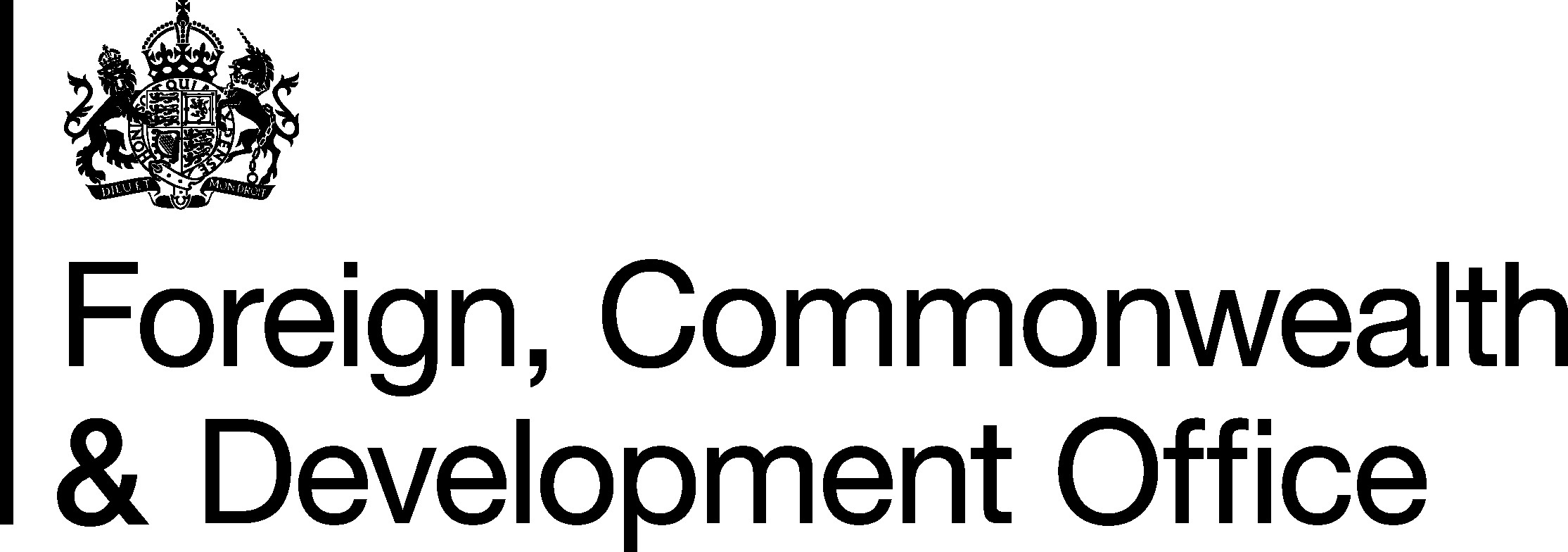

14 November 2024, Nyamlel— The European Union officially handed over a 163-meter-long Nyamlel
Bridge, built across the Lol River, to the Ministry of Roads and Bridges in Aweil West County today.
The European Union funded the bridge completion under the "European Union Trust Fund - Feeder Roads Project. The project implemented by the United Nations Office for Project Services (UNOPS) commenced in August 2020. The bridge was partially opened to the public in May 2023, and it is now completed and fully operational.
With 13 million euros in European Union funding, UNOPS has completed the construction of the Nyamlel Bridge, 44 kilometers of feeder roads, and seven WASH facilities in Northern and Western Bahr el Ghazal states. The bridge directly benefits over 750,000 people by connecting Aweil North and Aweil West counties and Sudan.
The Honorable Simon Mijok Mijak, the National Minister of Roads and Bridges, the Deputy Governor of Northern Bahr el Ghazal State, H.E. Dr. Tong Lual Ayat, and the Ambassador of the European Union to the Republic of South Sudan, H.E. Timo Olkkonen, among other stakeholders and guests, attended the handover on Thursday.
“Completing this project has significantly enhanced security, enabling our security forces to reach remote areas more quickly and preventing many from drowning while crossing the river. The bridge will also facilitate the movement of refugees and returnees from Sudan and boost trade by improving the transport of goods. It is a tangible and valuable asset for local communities, providing safe, faster, and more
reliable access to services and markets,” Minister Mijok said during the handover.
The project created direct employment to 1260 people, including 200 women. UNOPS Country Manager, Ms. Petronella Halwiindi, applauded the EU for the generous funding. “The completion of these essential feeder roads and WASH facilities has improved access to clean water, healthcare, education and agricultural inputs. These enhancement combined have led to a reduction in transaction costs and the emergence of community mobile markets along the routes, contributing to improved livelihoods for local communities,” Ms Halwindi said. “The project and the bridge's completion have elevated the living
standards for more than 1.2 million women, men, and children. UNOPS remains committed to working
closely with its partners in South Sudan to build durable solutions to development challenges.”
The European Union Ambassador also weighed in, saying the decades of armed conflict and climate change have destroyed existing road network in South Sudan. “I am happy to witness the milestone achieved today in Nyamlel. The EU has been supportive of the development and resilience of South Sudan's economy,” Ambassador Olkkonen said. “The bridge and the feeder road improvements have made daily life easier for citizens and represent a tangible outcome of the EU’s Global Gateway Strategy, which invest on better connectivity infrastructure to promote sustainable development globally. Now it is essential that authorities ensure the maintenance of the infrastructure for the benefit of the people so that the value of this important development investment is not lost. .”
The EU Trust project was designed to complement and build on the successes of previous EU-funded initiatives in Northern and Western Bahr El Ghazal, where rural infrastructure development has led to significant improvements in connectivity and access to essential services. The new Trust Fund project has effectively addressed the gaps left by the previous initiative, which could not develop some key roads and bridges due to budget limitations. This includes the construction of the crucial Nyamlel Bridge—the only connection between Aweil North and West counties.
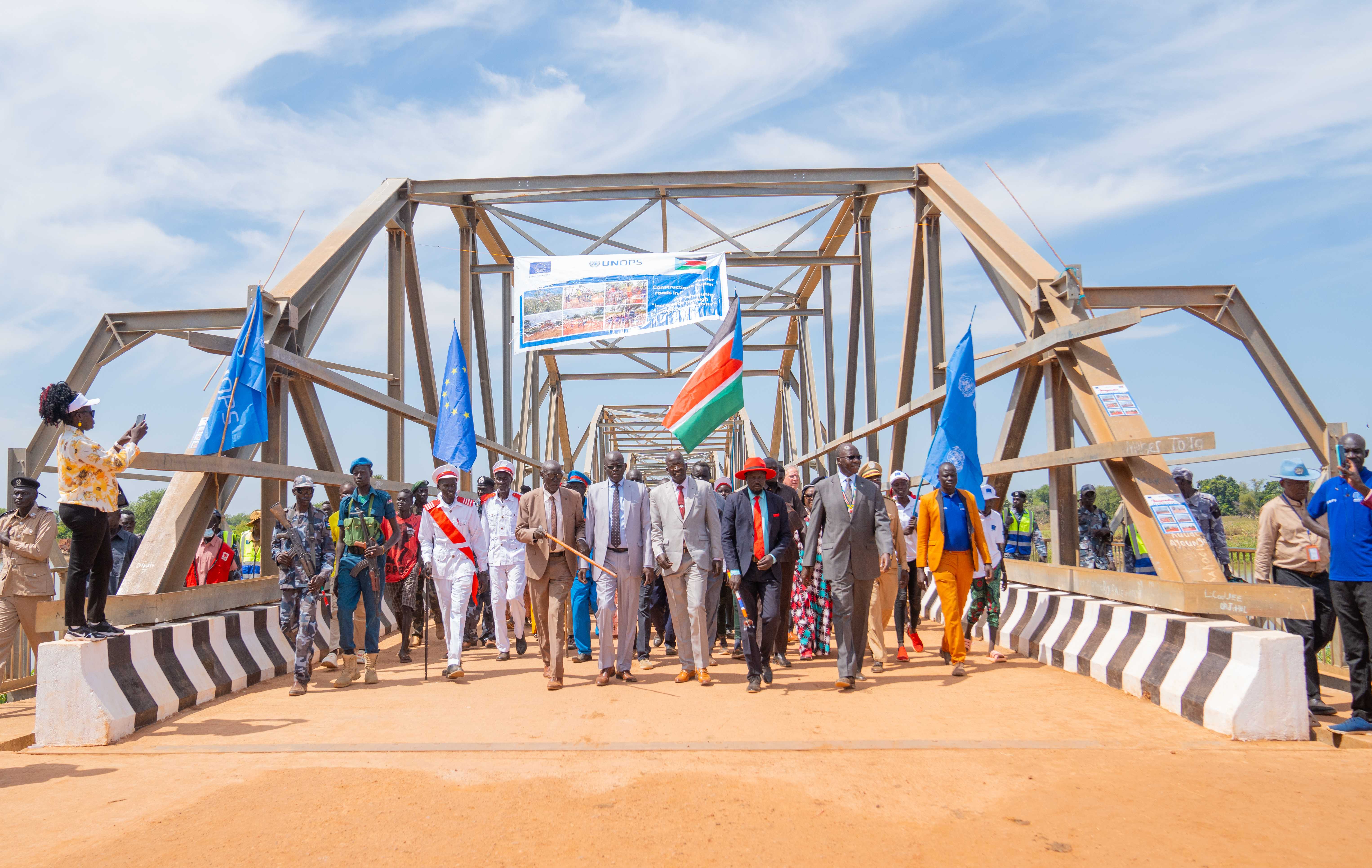

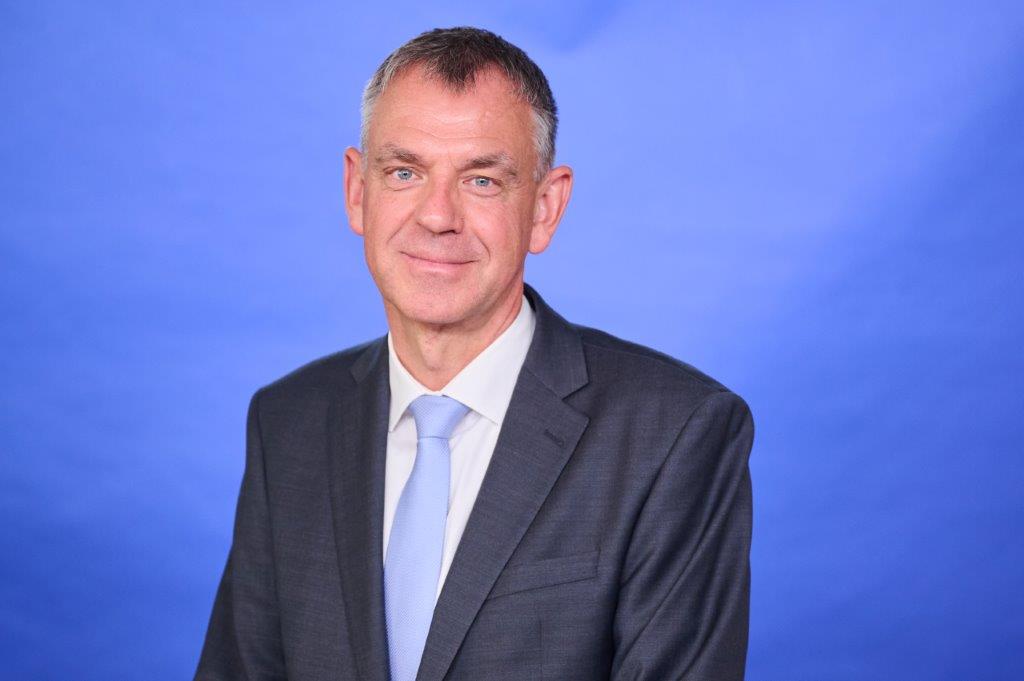

22 October 2024 – Juba: Germany has provided additional 2 million Euros to the benefit of a new UNICEF project scaling up services for women and girls in South Sudan which counter Gender Based Violence (GBV). 14,000 people across South Sudan will benefit from this project, among them 11,000 women and girls.
H.E. Christian Sedat, German Ambassador to South Sudan, stated on the occasion of the renewed financial contributions from Germany: “Germany is continuously supporting the People of South Sudan. We put the needs of the most vulnerable groups in society first, and with this new funding we want to support women and girls who have been the target of Gender Based Violence. We must all join forces in the fight against gender-based violence in South Sudan. With our support to UNICEF we want to ensure that victims have improved access to services necessary for healing and recovery and that they can feel safe in their communities.”
The Ambassador reaffirmed Germany's continued commitment to the People of South Sudan, highlighting its overall position as the second-largest bilateral donor.
UNICEF’s Country Representative, Ms. Hamida Ramadhani, states: “We are deeply grateful to the German Government for their enabling support in advancing GBViE programming in South Sudan. Through this initiative, we will provide comprehensive responses to gender-based violence, including health services, case management, and psychosocial support. By empowering women-led organizations and scaling up innovative programs, we aim to create safer communities and enhance resilience. This partnership underscores our shared dedication to protecting and uplifting the most vulnerable women and girls impacted by conflict, displacement, and floods."
Germany’s donation to counter Gender Based Violence through UNICEF targets areas that are heavily impacted by recurrent flooding, inter-communal violence and hosting refugees and returnees from Sudan. The programme seeks to ensure that women and girls, especially the most marginalised, have access to services to enhance their safety and well-being and enjoy lives without falling victim to violence.
“Victoria’s passing is not just the loss of a remarkable woman, but of an intrepid witness to history. Regardless of her cause of death, we can say with certainty that her life was taken because she dared tell the truth.”
— Nadine Hoffman, IWMF Deputy Executive Director
IWMF Statement on Death of Victoria Roshchyna, 2022 Courage Award Winner
October 10, 2024 — The International Women’s Media Foundation (IWMF) is devastated to learn that Ukrainian journalist Victoria Roshchyna, a 2022 Courage in Journalism Award recipient, has died while imprisoned in Russia. As details emerge surrounding the circumstances of her death, our thoughts are with Victoria’s family, colleagues, and loved ones during this immensely difficult time.Victoria disappeared on August 3, 2023 while reporting in Russian-occupied territory, when it is believed she was captured by Russian military forces. Russia’s Defense Ministry confirmed her detention in April 2024, nearly eight months later. Prior to her imprisonment, Victoria spent more than a year reporting from the front lines of Russia’s war on Ukraine as an independent journalist for outlets including Ukrayinska Pravda, Hromadske and Radio Free Europe.
Victoria’s passing is not just the loss of a remarkable woman, but of an intrepid witness to history. Regardless of her cause of death, we can say with certainty that her life was taken because she dared tell the truth. We hope her death will not be in vain: the international community must pressure Russia to cease targeting journalists and silencing press freedom.


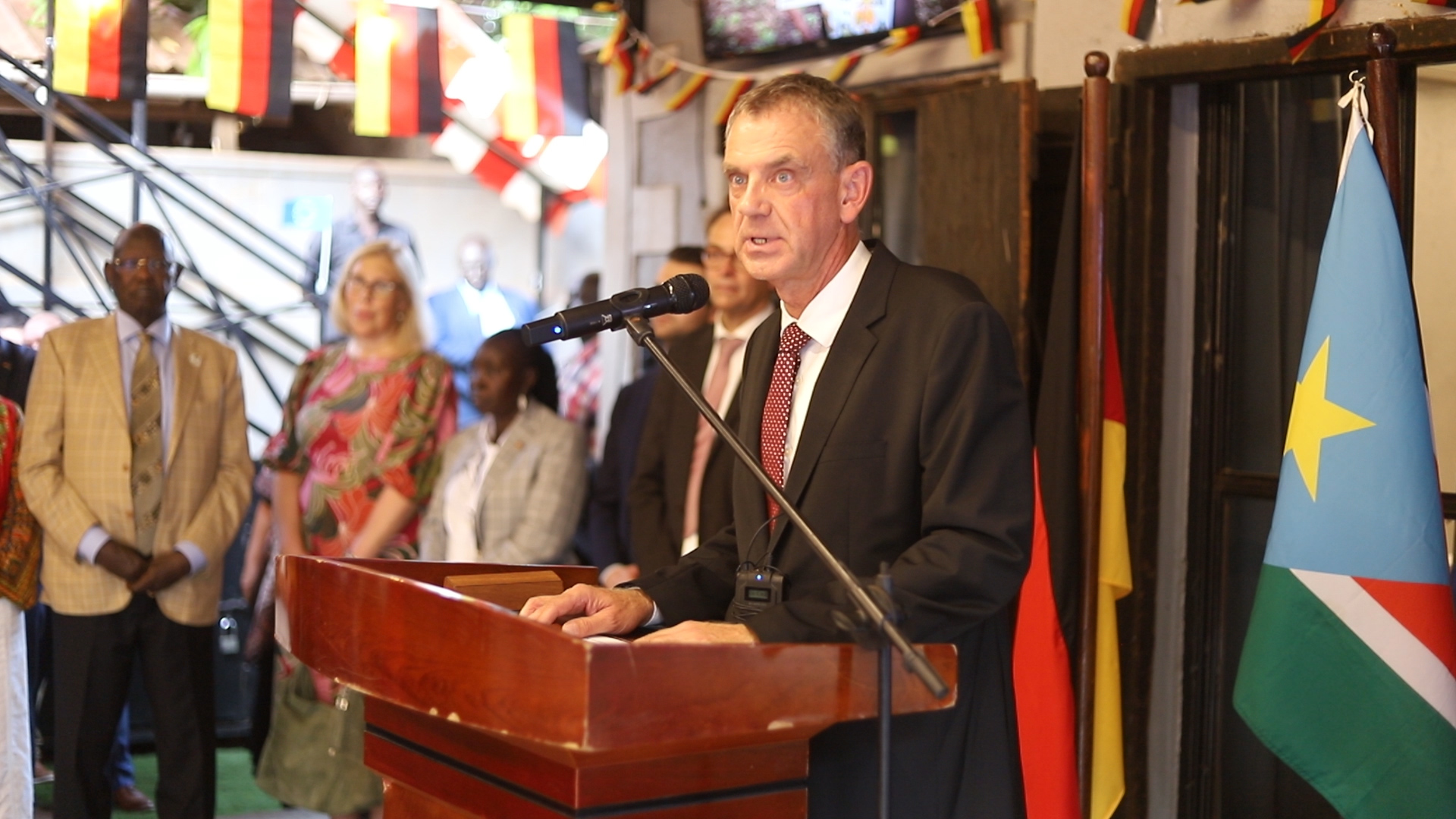

04 October 2024 – Juba: On the occasion of the German National Day H.E. Christian Sedat, German Ambassador to South Sudan, recalled the German Foreign Minister’s visit to Juba at the beginning of the year and the messages she conveyed to the South Sudanese leadership.
In his speech, Ambassador Sedat stressed: “The German Foreign Minister Annalena Baerbock highlighted the urgency to fully and swiftly implement the peace agreement and to do it in a way of constructive dialogue amongst all partners, with the objective of finding consensus where consensus is lacking. While the discussion is ongoing how to make sure that the 2-year extension ahead takes a very different approach than the previous one, the messages of the German Foreign Minister remain urgent and relevant.”
The reception for the German National Day in Juba was attended by many high-ranking government officials including the Deputy Foreign Minister, Hon. Monday Semaya Kumba, as Guest of Honour and representatives of civil society, the diplomatic community, German humanitarian and development NGOs as well as German military and civilian UNMISS personnel.
Ambassador Sedat thanked them for their presence and concluded his speech by reiterating Germany’s commitment to actively working together to contribute to a future for South Sudan which brings improvements for the population, which lets the potential of South Sudan shine and which preserves the peace.
photocredit Samir Bol
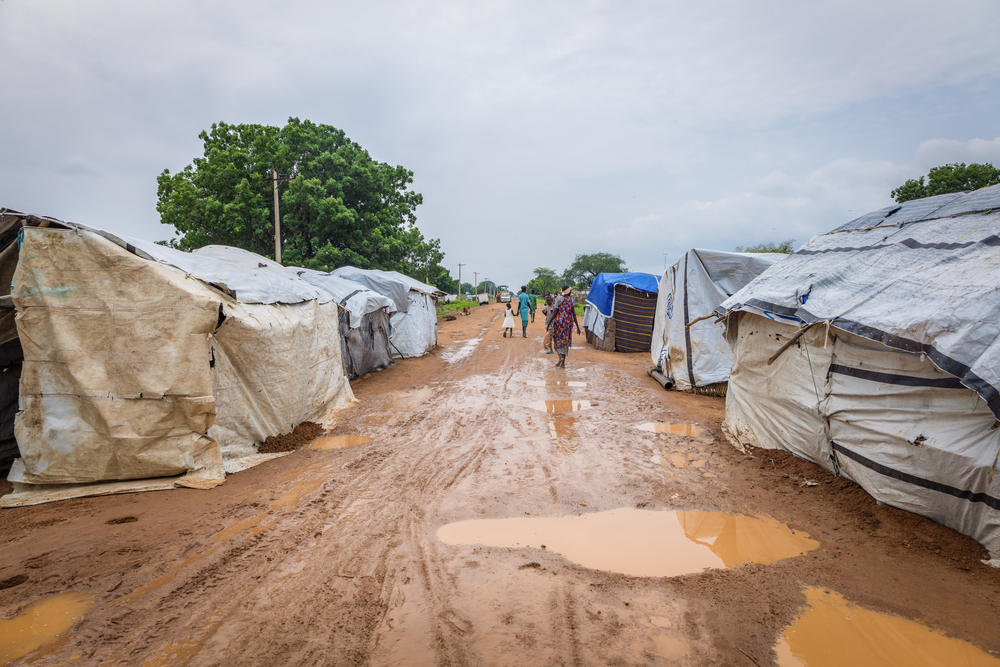

Juba, South Sudan, 17 September 2024 – A water, sanitation and hygiene crisis is unfolding in Abyei Special Administrative Area, fueling the ongoing hepatitis E outbreak, warns Médecins Sans Frontières (MSF). Poor sanitation, severe water shortages, and inadequate infrastructure are exacerbating the spread of the virus through contaminated drinking water, placing thousands at risk.
In July 2024, health authorities in Abyei declared an outbreak of hepatitis E, since then 41 cases have been reported, resulting in six deaths (a 16 per cent case fatality rate), including five women, of whom three were pregnant, and one male. The situation has worsened due to the influx of over 22,000 people crossing the border into Abyei since the beginning of the conflict in neighboring Sudan. The incessant movement of internally displaced people and refugees significantly increases the risk of hepatitis E transmission in the region, while MSF has faced barriers to diagnose the disease due to a shortage of rapid detection tests.
"Currently, we have four patients in the isolation ward, but the situation is fluctuating, and we urgently need wash and sanitary infrastructures to prevent further deaths,” says Zélie Antier, MSF project coordinator in Abyei Special Administrative Area.
Since violent conflicts erupted in February 2022 in and around Agok, an estimated 70,000 people were displaced, with many seeking refuge in Abyei. The influx of displaced people has put an additional pressure on the limited services that were available for the already fragile communities, with over 85 per cent of people in need of humanitarian assistance.
In Amiet market, located about 14 km from Abyei town, more than 900 refugees, returnees from Sudan and internally displaced people live in overcrowded and unsanitary conditions. Here, hepatitis E has been particularly deadly - more than half of the total hepatitis E cases were people living in the Amiet market. With an estimated 20,000 people nearby and no available latrines, people are forced to practice open defecation, further contaminating water sources and worsening the virus's spread.
On August 22, approximately 250 families were displaced from the Abyei surroundings to Abyei town. Elizabeth Chatek, who arrived after her home was flooded, said, "We don’t have latrines. I have to defecate in the bushes, and my children use a bowl near the shelter." Privately owned latrines charge up to 1,000 SSP (around 20 US cents) per use, a cost too high for Elizabeth's family and many people in Abyei.
In Abyei town and Amiet market, a 20-liter jerrycan of water costs 500 SSP (around 10 US cents) a price many families can't afford. Displaced families have told MSF that rising inflation will soon make clean drinking water out of reach.
In one of Abyei’s secondary healthcare facilities, as of 12 September, MSF had provided supportive care services for 41 patients for hepatitis E at Ameth Bek Hospital and increased health promotion activities targeting pregnant women and new mothers to raise awareness about disease prevention.
As the ongoing rainy season continues to cause widespread flooding and threatens drinking water sources and drainage systems overflow, the risk of hepatitis E and other waterborne diseases such as cholera is at stake. Flooding is expected to worsen within the coming weeks with experts predicting extreme riverine flooding and flash floods.
“We urgently call on international donors and aid organisations to scale up their efforts by improving sanitation and providing clean drinking water in Abyei Special Administrative Area,” says Zélie Antier.
Caption / Description: A road in Abyei town where families displaced by the floods are buildingShelters.
Copyright: Aurélie Lécrivain/MSF
Date taken: 28 August, 2024
A water, sanitation and hygiene crisis is unfolding in Abyei Special Administrative Area, fueling an ongoing hepatitis E outbreak. Hepatitis E is an infectious liver disease caused by the hepatitis E virus (HEV), mainly spread through contaminated water and poor sanitation, severe water shortages, and inadequate infrastructure in Abyei are exacerbating the spread of the virus, placing thousands at risk.
In July 2024, health authorities in Abyei declared an outbreak of hepatitis E, since then 41 cases have been reported, resulting in six deaths, including three pregnant women. Médecins Sans Frontières (MSF) teams in Abyei have provided supportive management to more than 40 patients at Ameth Bek Hospital in Abyei and currently have four admitted in the hospital.
FOR IMMEDIATE RELEASE 18 September 2024
We take note of the September 13 announcement of a two-year extension by the transitional government.
We are aware of the many challenges South Sudan is facing and understand the complexity of the electoral process. However, we wish to express our disappointment at this decision, as the timely holding of election is a key element in strengthening stability, democracy and sustainable development. They own this decision and are accountable to the people of South Sudan.
This decision reflects the failure of the transitional government to implement the 2018 peace agreement despite the promises made with the release of the “roadmap” in 2022.
Peace is our priority, and we remain convinced that peace can best be secured through legitimate and peaceful elections. South Sudan’s leaders bear shared responsibility to act with urgency to create the necessary conditions for such elections to take place. We support both the Tumaini Initiative talks in Nairobi, and consistent leadership-level discussions in Juba.
We call on all stakeholders to create the conditions necessary for the holding of peaceful, transparent and inclusive elections as soon as possible. There is a need to engage all parties, including the 'non-signatories', in a positive process as well as demonstrate how the proposed extension would progress what the last years have failed to deliver. The process of developing this plan must be consultative, inclusive and transparent.
A 24-month extension would mean 24 months more expenditure on the institutions that implement the peace process. We expect the government of South Sudan to come forward with a credible and transparent plan as to how these will be financed.
The undersigned continue our unwavering support to the people of South Sudan.
Signed:
UK, US, Norway, EU, Canada, France, Germany, Netherlands


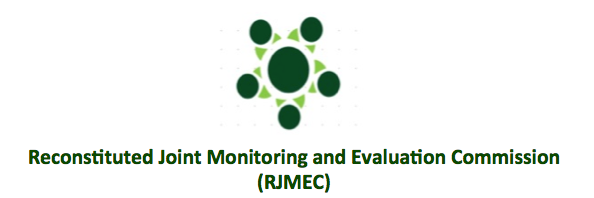

The Reconstituted Joint Monitoring and Evaluation Commission (RJMEC) today Wednesday 18 September, 2024 convened its 3rd Extraordinary meeting in Juba.
The meeting was convened at the request of the Revitalised Transitional Government of National Unity (RTGoNU) for RJMEC members to consider the decision of the Parties to the Revitalised Agreement on the Resolution of the Conflict in the Republic of South Sudan (R-ARCSS) to extend the Transitional Period of the Peace Agreement for twenty-four months, from 22nd February 2025 to 22nd February 2027.
Article 8.4 of the Revitalised Agreement requires that at least two-thirds of the members consent to an extension of the Agreement, which is 29 of the total 43 members. 34 voted in favour of the extension.
The RJMEC vote now requires ratification by the Transitional National Legislature, according to the constitutional amendment procedures set out in the Transitional Constitution of the Republic South Sudan, 2011 (as amended).
As the next step, the RJMEC Chairperson will submit the decision and the accompanying resolution to the Council of Ministers to be forwarded to the Transitional National Legislative Assembly for ratification and amendment of the Transitonal Constitution.
Speaking at the opening of the meeting, RJMEC Chairperson Amb. Maj. Gen. Charles Tai Gituai said:“As RJMEC, we have repeatedly expressed our concerns over the slow pace and limited progress in completing the critical requirements for elections, and the lack of sufficient funding for the implementation of the Agreement.”
He added, “In March this year, we requested the Parties to the R-ARCSS to dialogue on the way forward to ensure the conduct of free, fair, and credible elections in a timely manner as per the Roadmap, but despite all the pressure put, the response has been slow to come out in an appropriate time frame.”
The concern of RJMEC, he said, has been the lack of dedicated and predictable funding in this peace process.
“Therefore, any extension, without guaranteed funding, is not likely to result in a successful outcome,” he said.
“I therefore call upon the RTGoNU to demonstrate to RJMEC members, how funding in particular, and the other recurrent challenges that have held back the implementation of the R-ARCSS in the past will be remedied to ensure that the critical pending tasks will be completed and elections held as promised,” he concluded.
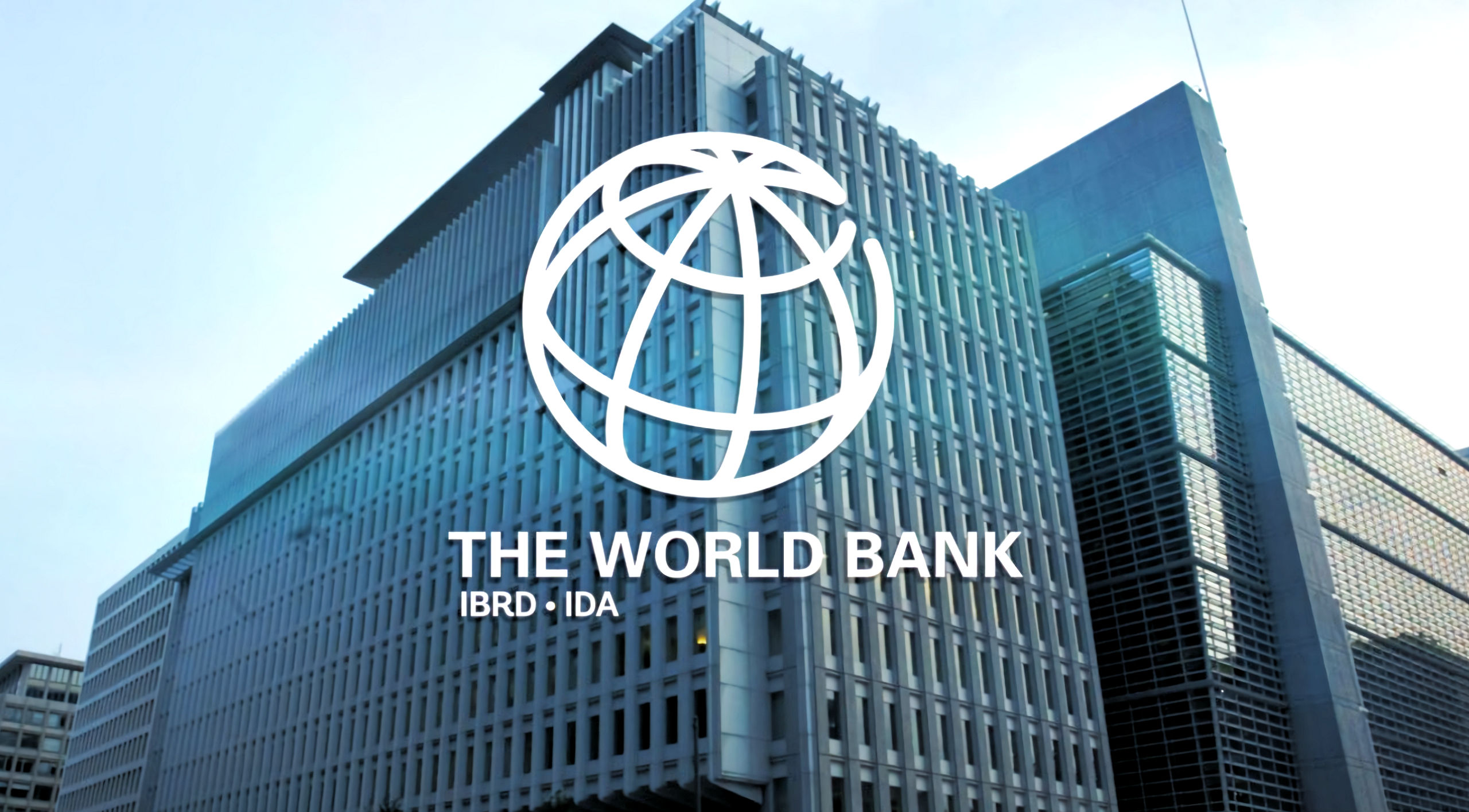

JUBA, September 6, 2024—The World Bank Group Executive Board of Directors has approved International Development Association* (IDA) grant financing to the Government of the Republic of South
Sudan (GoSS) to support strengthening of institutional and human resource capabilities in the public service to better deliver basic needs and services to citizens. The IDA grant of US$15 million will join GoSS
counterpart funding of US$3 million, bringing the total project amount to US$18 million.
The grant will finance the Building Institutional Foundations for an Effective Public Service Project (BIFEPS), which will play a key role in improving state capacity over the long term. Over a three-year
period, the project aims to strengthen policies, procedures, and systems for civil service management; support institutional development to create sustainable public sector capacity; and incentivize the effective implementation of selected sector reforms. This intervention is crucial to improve the Government’s ability to effectively fulfill its service delivery functions.
“This project will lay the foundation for an effective and efficient public service including through enhanced institutional capacity to attract and retain qualified public servants, a competency-based human resource management framework in the civil service, and the establishment of a performance-based culture in service delivery. Its interventions will complement ongoing sectoral operations supported by the World Bank, putting in place foundational elements needed to sustain reforms in the long run and strengthen government ownership,” said Maryam Salim, World Bank Country Director for Eritrea, Ethiopia, South Sudan, and Sudan.
This project aligns with the World Bank Group’s strategy in South Sudan that focuses on strengthening institutions and capacity and emphasizes the need to address foundational elements of reform and take a gradual approach to rebuild and reshape institutions.
It also aligns with the priorities of the Government of South Sudan as articulated in Chapter IV of the Revitalized Agreement on the Resolution of the Conflict in the Republic of South Sudan (R-ARCSS) and the Revised National Development Strategy (R-NDS) 2021–2024, which underscores the need to strengthen institutions for transparent, accountable, and inclusive governance through reforming the civil service, among other strategic objectives.
“The Government recognizes the central role that the public servants play in service delivery. It is therefore imperative that sectors across the public service have structures and staffing that align with their
functions, and that we invest in building a pipeline of future civil servants by providing opportunities for qualified young professionals to gain work experience in, and potentially join the public service,” said Honorable Dak Duop Bichiok, Minister of Public Service and Human Resource Development.
Improved public service effectiveness also requires a well-functioning pension scheme where eligible civil servants can retire and create space for new talent to join the service. The project will also support
improving the conditions for a transparent and accountable pension fund.
The World Bank’s International Development Association, established in 1960, helps the world’s lowincome countries by providing grants and low to zero-interest loans for projects and programs that boost
economic growth, reduce poverty, and improve people’s lives. IDA is one of the largest sources of assistance for its 75 client countries, 39 of which are in Africa. Since 1960, IDA has provided $552 billion
to 115 countries. Annual commitments have averaged about $36 billion over the last three years (FY21- FY23), with about 75% going to Africa. Learn more online: https://ida.worldbank.org #IDAworks.
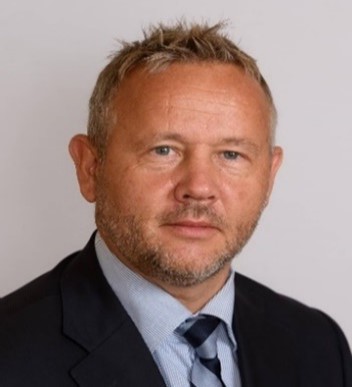

September 3, 2024 – The Royal Norwegian Embassy in Juba is pleased to announce the arrival of Mr. Roar Haugsdal — the new Ambassador of the Kingdom of Norway to the Republic of South Sudan. Ambassador Haugsdal succeeds former Ambassador Linken Nymann Berryman. Prior to his appointment, Ambassador Haugsdal held prominent roles within the Norwegian Ministry of Foreign Affairs, including Minister Counsellor and Charge d’affaires a.i. in Baghdad, Iraq, and Deputy Head of Mission in Amman Jordan. Ambassador Haugsdal has also served in the Department of Humanitarian Affairs, and at the Norwegian Embassy in The Hague in the Netherlands. With a comprehensive understanding of international relations and an extensive background in diplomacy and development collaboration, Ambassador Haugsdal is equipped to further strengthen the long-standing relationship between the Kingdom of Norway and the Republic of South Sudan. Ambassador Haugsdal said: “I am delighted to arrive in Juba to start my tenure as Norwegian Ambassador. Here, I will be focusing on key areas of Norwegian engagement in South Sudan, including supporting the implementation of the Peace Agreement, addressing the humanitarian crisis, and advancing development priorities such as education, women peace and security, good governance, and human rights. I also look forward to visiting the various regions of this vast and diverse nation.” Norway has consistently stood by the people of South Sudan in their journey towards peace and progress, and this partnership will continue to be a cornerstone of Ambassador Haugsdal’s work.
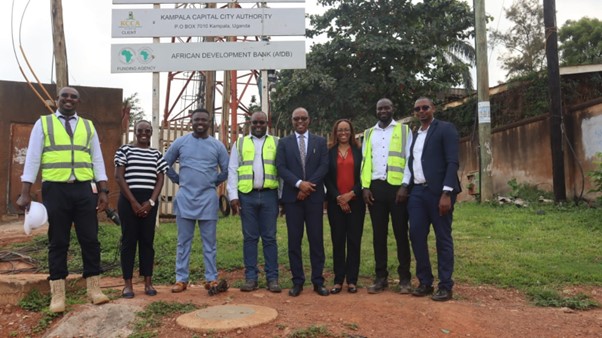

ABIDJAN, Ivory Coast, September 3, 2024/ -- On Monday, 15 July 2024, the African Development Bank Group’s Director for Climate Change and Green Growth (www.AfDB.org), Prof. Anthony Nyong, led a Bank Group team to inspect the 69.2 km Kampala City Roads Rehabilitation Project (KCRRP) (https://apo-opa.co/3MuqQ0R). He was joined by Regional Principal Climate Change Officer, Dr. Olufunso Somorin, Climate Change Expert, Muthoni Nduhiu as well as Engineer Justus Akankwasa, Director of Engineering and Technical Services with the Kampala Capital City Authority (KCCA).
The project is expected to benefit at least 1.6 million people, including commuters, business owners, and transport providers by tackling congestion in Kampala. This will be achieved through improvements to the road network, upgrading of traffic junctions, and drainage capacity enhancements to mitigate street flooding.
The Bank has mobilised $275 million for the project, with the Global Environment Facility and the Government of Uganda jointly contributing $5 million. The implementation progress across all components is currently at approximately 28.4%. The original disbursement deadline has been extended by 3 years. The new project completion date is set for December 31, 2027. KCCA is the project implementer.
Kampala, Uganda’s administrative and commercial capital, faces significant infrastructure challenges. Most of its roads are in poor condition, particularly during the rainy seasons, and only 30 percent of the city’s 2,110 km road network is paved. Poor road infrastructure leads to frequent traffic jams, hindering access to workplaces, commercial areas, and social services. Additionally, inadequate solid waste management exacerbates flooding and impacts surrounding villages, necessitating integrated climate solutions.
To address the adverse effects of climate change, the Kampala City Roads Rehabilitation Project is integrating 5 kilometers of drainage structures to enhance stormwater management and will plant more than 10,000 trees along the streets for carbon sequestration and noise reduction.
During the visit, Director Akankwasa of KCCA, said, "Uganda is proactive on issues of sustainability and climate change, incorporating resilience into our initiatives while looking for opportunities to scale up. As a city of seven hills, Kampala faces persistent flooding challenges that require sustainable, newly designed systems. We need support to re-engineer these systems to tackle the climate challenges we face, such as flooding."
In addition to tackling congestion, the project will also improve air quality by implementing scheduled eco-bus transit services, and expanding pedestrian and bicycle paths to improve travel options in the city.
Prof. Nyong said, "The African Development Bank is very happy to be associated with this project. We are committed to continuing to mainstream resilience measures into the project to ensure that it remains sustainable and adapts to future climate shocks.”
He added that the Bank’s Urban Municipality Development Fund (UMDF) could assist through provision of feasibility studies, particularly on road infrastructure. He highlighted an upcoming call for proposals by the Africa Climate Change Fund on methane abatement, which could support solid waste management by the Kampala Capital City Authority.
Launched in 2019, the project was initially planned for implementation from 2020 through December 2024. The implementation period has now been extended to December 2027.
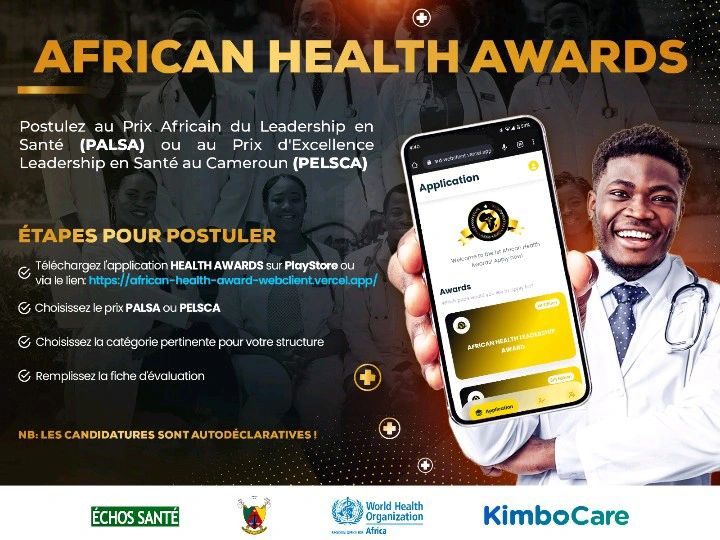

Yaounde, Cameroon – The ECHOS SANTE Media Group is proud to announce the 2nd edition of the African Health Leadership Prize (PALSA), a prestigious international event recognizing and honoring outstanding contributions of healthcare stakeholders in Africa. This year, PALSA promises to be even grander and more inclusive, with the participation of 30 African countries. The event will take place in Yaoundé, Cameroon, from November 27 to 29, 2024, showcasing progress and remarkable achievements in healthcare across the African continent. The highlight of this event will be a high-level Scientific Congress themed "Mother and Child Health in Africa: Status and Perspectives." This congress, to be held at the Faculty of Medicine and Biomedical Sciences of the University of Yaoundé I on November 27-28, 2024, will bring together healthcare experts and professionals from across Africa. A booklet of abstracts presenting the latest research and advancements in mother and child health will be produced and distributed to participants. The associated congress exhibition is expected to attract over 10,000 participants and visitors, offering a unique platform for healthcare businesses to connect and gain exposure. The PALSA gala dinner, to be held on November 29, 2024, at the Hilton Hotel in Yaoundé, will be a prestigious event gathering more than 500 distinguished guests, including political and administrative personalities, business leaders, healthcare professionals, and NGO and association representatives. Over 70 laureates will be honored for their dedication and invaluable contributions to improving healthcare in Africa. The event will be broadcast live on national television channels with international reach. The African Health Leadership Prize is an international event with the noble mission of recognizing and celebrating the exceptional contributions of dedicated healthcare stakeholders in Africa. The Scientific Committee of the Prize is composed of eminent Rectors, Deans of Medical Faculties, and Presidents of Healthcare Professional Orders from 18 African countries, ensuring the integrity and credibility of the laureate selection process. The 1st edition of PALSA, which saw the participation of 20 African countries, was a great success. It took place on November 16, 2023, under the patronage of the Prime Minister, Head of Government, Joseph Dion NGUTE. Over 70 personalities and organizations in the healthcare sector, including Mrs. Chantal BIYA, the First Lady of Cameroon, and Dr. MATSHIDISO MOETI Rebecca, WHO Regional Director for Africa, were distinguished for their exceptional contributions. The ECHOS SANTE Media Group, the organizer of this event, is a leading entity in African healthcare, with a mission to promote excellence and innovation in healthcare across the continent.
Brussels, 22 August 2024
The European Union (EU) has released an additional €122 million for humanitarian assistance in the Greater Horn of Africa, as the region continues to face the impact of conflicts and climate-related disasters such as drought and floods. The funding will help address the most urgent needs of vulnerable populations, notably with food and nutrition assistance, but also with other services to meet basic needs, such as water and sanitation in locations at high risk of disease outbreaks.
In particular, the funding will be dedicated to partners working in Ethiopia (€42 million), Somalia (€40 million) and South Sudan (€40 million).This additional funding brings the total EU aid to the Greater Horn of Africa to more than €421 million so far this year, including a reinforcement of over €56 million mobilised in April in response to the consequences of the crisis in Sudan.
South Sudan is experiencing a sharp economic crisis this year, while the conflict in neighbouring Sudan is also increasing displacement and the vulnerability of the population. At least 80,000 people are expected to be in famine-like conditions this summer. The prospect of new floods as of September is worrying, especially for areas that have not yet recovered from the previous four consecutive years of floods.
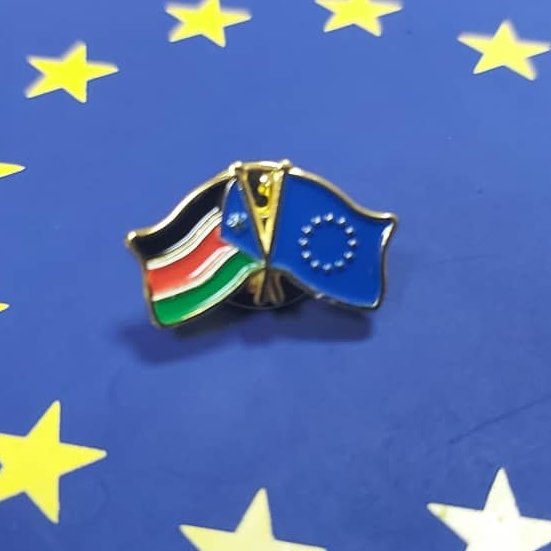

On the seventh anniversary of the death of Christopher Allen on August 26, 2017, we renew our call on the transitional government to conduct a credible investigation into Mr. Allen’s death and to demonstrate the political will to take accountability seriously. The findings that were announced on March 21 of this year did not address in a comprehensive manner all the factors that led to Mr. Allen’s death or the disrespectful treatment of his remains. Mr. Allen was a dual U.S. and UK citizen journalist who was shot and killed while covering the conflict in South Sudan.


The U.S. government strengthens its commitment to South Sudan’s expanded immunization program through support of the new malaria vaccine for children. On July 12, South Sudan became the second African country to introduce the malaria vaccine through health partners. Recommended for children aged six to 18 months, the vaccine will greatly reduce children’s illnesses and deaths from malaria in South Sudan.
In addition to the new malaria vaccine, USAID also supports a wide array of critical childhood vaccines in South Sudan, including polio prevention programs and broader disease surveillance and response. USAID has contributed $100 million to support maternal child health care services in South Sudan in the last five years.
The United States will continue its support of life-saving vaccines and work with South Sudan’s partners to ensure children are vaccinated against malaria and other childhood diseases.


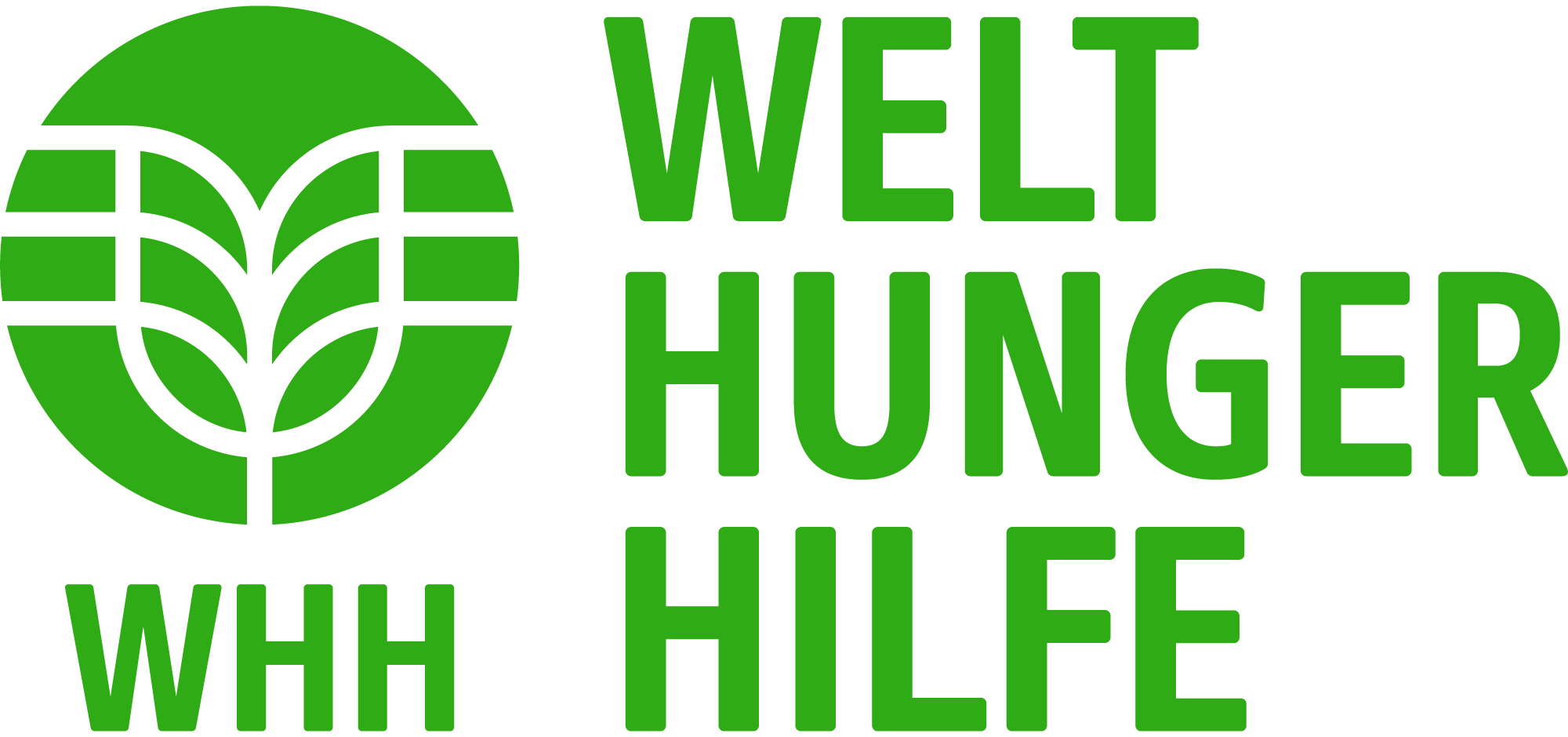

Juba, 22/08/2024 – July marked the successful conclusion of the project “RE-LIVE: Re-building and Securing Livelihoods in Greater Rubkona”, implemented by WHH South Sudan and funded by the German Federal Ministry for Economic Cooperation and Development (BMZ). Over the last five years, it contributed to improving food security and stabilizing the livelihoods of 36,000 people in Greater Rubkona, Unity State.
The project started in 2019, but with the 2021 floods that affected Unity State much of the progress the population had made in re-building their livelihoods, improving food production and rehabilitating infrastructure faced severe setbacks. More than 90% of project areas were submerged, wiping out farming and pasture lands; vital productive assets like cattle and poultry were lost; homes and small businesses became unreachable. Following the flood emergency, the 1.6 million top up from BMZ was crucial for helping communities recover and strengthen their resilience. Despite being displaced and losing their possessions, people immediately started working to get their lives back on track.
450 farmers set up 18 multi-crop model gardens, cultivating an impressive variety of over thirteen vegetables and staple crops to be consumed at home. The excess produce is sold on local markets. This means that gardens are not only a source of food and balanced nutrition but can also sustain families financially. An overwhelming 98% of the 4,000 households involved in the project reported at least a 15% increase in crop yields and, on average, families now rely on an additional two months of food security.
“We grow our own staples and vegetable crops, with different produce available in different seasons. Maize is available all year round. We eat the vegetables that we harvest at home, and we also sell them on the market. On average we earn 30,000 South Sudanese Pounds per month with the sales”, explains James Gawar Kuol, the lead of a farmers group taking care of a garden in Haingas, Bentiu.
These encouraging results have been achieved thanks to the promotion of sustainable small-scale irrigation techniques powered by solar pumps, that allow farmers to cultivate all year round. In addition, farmers attended hands-on training on good agricultural practices, seeds selection, land preparation, sowing and crop management, compost making and utilization, crop rotation and post-harvest management. As farming techniques improved, farmers have been able to add four new crops to the variety of vegetables grown: sukuma wiki, amaranthus, jute mallow and eggplant.
But the impact of the project does not stop at farming. The project also promoted diverse business activities, such as poultry farming, egg production, beekeeping and honey production, sugarcane cultivation, production and marketing of moringa powder, and fish preservation. Thanks to a loan system set up through Village Savings and Loan Associations (VSLA), more than 2,000 community members have been able to invest in new small business and sustain their agricultural efforts.
The VSLAs have positively impacted community well-being, economic opportunities and financial inclusion for women, who make up the majority of VSLA members. Over 94% of VSLA members reported an income boost, with nearly a third experiencing substantial increases of 60% or more.
As a community leader from Rubkona shared, "VSLA groups have developed mechanisms to manage themselves, holding each other accountable”. The expectation is that these groups will continue to thrive independently, sustaining the economic growth they have sparked.
To complement the farming and business activities, the project integrated holistic training on nutrition and hygiene practices, menstrual hygiene management, and gender equality. As part of the training package, communities particularly enjoyed cooking demonstrations as they connected crop production to food consumption. Women and young girls also highlighted the importance of menstrual hygiene awareness activities, including the use of Ruby menstrual cup.
Training on gender-related issues has been a unique component of the project. The training contributed to empowering women to have a say in household decisions, from crop selection to budgeting. This shift in family dynamics has led to significant improvements in food and nutrition security across households. The training also increased men’s acceptance of women’s active participation to community development, initiating a virtuous cycle that saw women’s involvement in projects at community level jump from 10% to 70%
As the RE-LIVE project wraps up, the focus is on prospects for the future. “The gardens set up by WHH have significant opportunities for being scaled” says Joshua Kanyara, Area-Based Leadership Coordinator at UN Office of the Resident Coordinator in Bentiu. He highlighted the variety of vegetable crops, good irrigation system and community management of the gardens as their main strengths.
With an increasingly pressing need to transition from emergency food assistance to sustainable solutions that can ensure food security in the long run, it is time for humanitarian and development partners to come together, exchange lessons learned from their respective interventions and collectively design suitable models to replicate across locations in the State. Farmers also need to be better connected to identify opportunities that can bring higher returns on their investment in agriculture. This will increase their motivation and the willingness of younger generations to take up farming.
Some of the farmers running the gardens are already planning their next steps, such as sourcing seeds for new crops independently and scaling-up group and individual businesses using VSLA savings. The RE-LIVE project may be ending, but the knowledge, skills and confidence it has helped boost will keep flourishing. Communities in Greater Rubkona are motivated to keep building on this foundation for a more resilient future.